
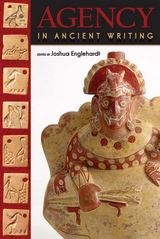
Individual agents are frequently evident in early writing and notational systems, yet these systems have rarely been subjected to the concept of agency as it is traceable in archeology. Agency in Ancient Writing addresses this oversight, allowing archeologists to identify and discuss real, observable actors and actions in the archaeological record.
Embracing myriad ways in which agency can be interpreted, ancient writing systems from Mesoamerica, Mesopotamia, Egypt, Crete, China, and Greece are examined from a textual perspective as both archaeological objects and nascent historical documents. This allows for distinction among intentions, consequences, meanings, and motivations, increasing understanding and aiding interpretation of the subjectivity of social actors. Chapters focusing on acts of writing and public recitation overlap with those addressing the materiality of texts, interweaving archaeology, epigraphy, and the study of visual symbol systems.
Agency in Ancient Writing leads to a more thorough and meaningful discussion of agency as an archaeological concept and will be of interest to anyone interested in ancient texts, including archaeologists, historians, linguists, epigraphers, and art historians, as well as scholars studying agency and structuration theory.
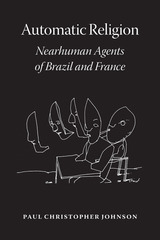
Automatic Religion explores an unlikely series of episodes from the end of the nineteenth century, when crucial ideas related to automatism and, in a different realm, the study of religion were both being born. Paul Christopher Johnson draws on years of archival and ethnographic research in Brazil and France to explore the crucial boundaries being drawn at the time between humans, “nearhumans,” and automata. As agency came to take on a more central place in the philosophical, moral, and legal traditions of the West, certain classes of people were excluded as less-than-human. Tracking the circulation of ideas across the Atlantic, Johnson tests those boundaries, revealing how they were constructed on largely gendered and racial foundations. In the process, he reanimates one of the most mysterious and yet foundational questions in trans-Atlantic thought: what is agency?
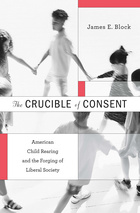
A democratic government requires the consent of its citizens. But how is that consent formed? Why should free people submit to any rule? Pursuing this question to its source for the first time, The Crucible of Consent argues that the explanation is to be found in the nursery and the schoolroom. Only in the receptive and less visible realms of childhood and youth could the necessary synthesis of self-direction and integrative social conduct—so contradictory in logic yet so functional in practice—be established without provoking reservation or resistance.
From the early postrevolutionary republic, two liberal child-rearing institutions—the family and schooling—took on a responsibility crucial to the growing nation: to produce the willing and seemingly self-initiated conformability on which the society’s claim of freedom and demand for order depended. Developing the institutional mechanisms for generating early consent required the constant transformation of child-rearing theory and practice over the course of the nineteenth century. By exploring the systematic reframing of relations between generations that resulted, this book offers new insight into the consenting citizenry at the foundation of liberal society, the novel domestic and educational structures that made it possible, and the unprecedented role created for the young in the modern world.
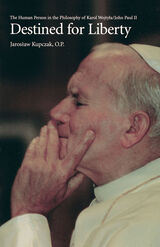
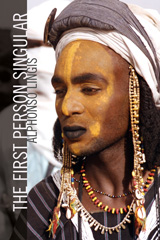
The subject Lingis elaborates in detail is the passionate subject of fantasy, of obsessive commitment, of noble actions, the subject enacting itself through an engagement with others, including animals and natural forces. This is not the linguistic or literary subject posited by structuralism and post-structuralism, nor the rational consciousness posited by post-Enlightenment philosophy. It is rather a being embodied in both a passionate, intensifying activity and a cultural collective made up of embodied others as well as the social rituals and practices that comprise this first person singular.
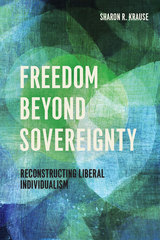
In Freedom Beyond Sovereignty, Sharon R. Krause shows that individual agency is best conceived as a non-sovereign experience because our ability to act and affect the world depends on how other people interpret and respond to what we do. The intersubjective character of agency makes it vulnerable to the effects of social inequality, but it is never in a strict sense socially determined. The agency of the oppressed sometimes surprises us with its vitality. Only by understanding the deep dynamics of agency as simultaneously non-sovereign and robust can we remediate the failed freedom of those on the losing end of persistent inequalities and grasp the scope of our own responsibility for social change. Freedom Beyond Sovereignty brings the experiences of the oppressed to the center of political theory and the study of freedom. It fundamentally reconstructs liberal individualism and enables us to see human action, personal responsibility, and the meaning of liberty in a totally new light.
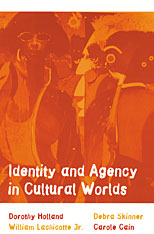
This landmark book addresses the central problem in anthropological theory today: the paradox that humans are products of social discipline yet producers of remarkable improvisation.
Synthesizing theoretical contributions by Vygotsky, Bakhtin and Bourdieu, Holland and her co-authors examine the processes by which people are constituted as agents as well as subjects of culturally constructed, socially imposed worlds. They develop a theory of self-formation in which identities become the pivot between discipline and agency: turning from experiencing one's scripted social positions to making one's way into cultural worlds as a knowledgeable and committed participant. They emphasize throughout that "identities" are not static and coherent, but variable, multivocal and interactive.
Ethnographic illumination of this complex theoretical construction comes from vividly described fieldwork in vastly different microcultures: American college women "caught" in romance; persons in U.S. institutions of mental health care; members of Alcoholics Anonymous groups; and girls and women in the patriarchal order of Hindu villages in central Nepal.
Ultimately, Identity and Agency in Cultural Worlds offers a liberating yet tempered understanding of agency, for it shows how people, across the limits of cultural traditions and social forces of power and domination, improvise and find spaces to re-describe themselves, creating their cultural worlds anew.
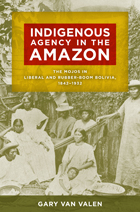
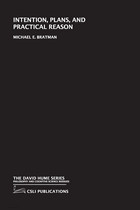

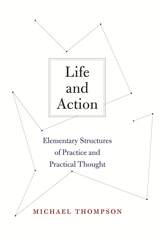
Any sound practical philosophy must be clear on practical concepts—concepts, in particular, of life, action, and practice. This clarity is Michael Thompson’s aim in his ambitious work. In Thompson’s view, failure to comprehend the structures of thought and judgment expressed in these concepts has disfigured modern moral philosophy, rendering it incapable of addressing the larger questions that should be its focus.
In three investigations, Thompson considers life, action, and practice successively, attempting to exhibit these interrelated concepts as pure categories of thought, and to show how a proper exposition of them must be Aristotelian in character. He contends that the pure character of these categories, and the Aristotelian forms of reflection necessary to grasp them, are systematically obscured by modern theoretical philosophy, which thus blocks the way to the renewal of practical philosophy. His work recovers the possibility, within the tradition of analytic philosophy, of hazarding powerful generalities, and of focusing on the larger issues—like “life”—that have the power to revive philosophy.
As an attempt to relocate crucial concepts from moral philosophy and the theory of action into what might be called the metaphysics of life, this original work promises to reconfigure a whole sector of philosophy. It is a work that any student of contemporary philosophy must grapple with.
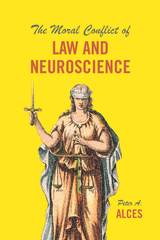
Peter A. Alces considers where and how the law currently fails to appreciate the neuroscientific revelation that humans may in key ways lack normative free will—and therefore moral responsibility. The most accessible setting in which to consider the potential impact of neuroscience is criminal law, as certain aspects of criminal law already reveal the naiveté of most normative reasoning, such as the inconsistent treatment of people with equally disadvantageous cognitive deficits, whether congenital or acquired. But tort and contract law also assume a flawed conception of human agency and responsibility. Alces reveals the internal contradictions of extant legal doctrine and concludes by considering what would be involved in constructing novel legal regimes based on emerging neuroscientific insights.
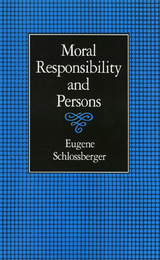
Challenging traditional philosophical views of moral responsibility, Eugene Schlossberger argues that we are responsible not so much for what we do as for who we are. He explores what it means to be a person, concluding that personhood is the sum of beliefs and values—which are by no means entirely within our control. Consequently, the voluntariness of our acts—or even whether we act at all—is irrelevant to the moral evaluation of us as persons. Schlossberger contends that we are to be judged morally on the basis of what we are, our "world-view," rather than what we do.
In Moral Responsibility and Persons Schlossberger disputes various received philosophical positions. His challenging and entertaining account also examines psychology and its view of the nature of personhood, as well as insanity and the "personality" of animals, children, and computers. He explores the validity of emotions we may feel in response to others—especially gratitude and resentment. And finally, Schlossberger tackles the inevitable implications of his position in the area of crime and punishment.
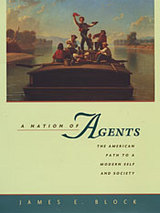
In this sweeping reinterpretation of American political culture, James Block offers a new perspective on the formation of the modern American self and society. Block roots both self and society in the concept of agency, rather than liberty, and dispenses with the national myth of the "sacred cause of liberty"--with the Declaration of Independence as its "American scripture." Instead, he recovers the early modern conception of agency as the true synthesis emerging from America's Protestant and liberal cultural foundations.
Block traces agency doctrine from its pre-Commonwealth English origins through its development into the American mainstream culture on the eve of the twentieth century. The concept of agency that prevailed in the colonies simultaneously released individuals from traditional constraints to participate actively and self-reliantly in social institutions, while confining them within a new set of commitments. Individual initiative was now firmly bounded by the modern values and ends of personal Protestant religiosity and collective liberal institutional authority. As Block shows, this complex relation of self to society lies at the root of the American character.
A Nation of Agents is a new reading of what the "first new nation" did and did not achieve. It will enable us to move beyond long-standing national myths and grasp both the American achievement and its legacy for modernity.
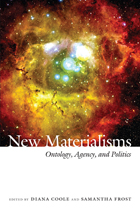
Coole and Frost argue that contemporary economic, environmental, geopolitical, and technological developments demand new accounts of nature, agency, and social and political relationships; modes of inquiry that privilege consciousness and subjectivity are not adequate to the task. New materialist philosophies are needed to do justice to the complexities of twenty-first-century biopolitics and political economy, because they raise fundamental questions about the place of embodied humans in a material world and the ways that we produce, reproduce, and consume our material environment.
Contributors
Sara Ahmed
Jane Bennett
Rosi Braidotti
Pheng Cheah
Rey Chow
William E. Connolly
Diana Coole
Jason Edwards
Samantha Frost
Elizabeth Grosz
Sonia Kruks
Melissa A. Orlie
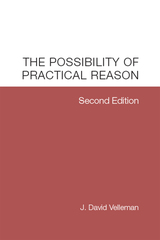
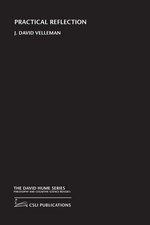

dealing with issues of agency. The authors raise issues that are very
important . . . and they raise them as they must be raised--by bridging
theory and action." -- Kathryn Pine Addelson, author of Moral
Passages: Toward a Collectivist Moral Theory
Both the women's liberation movement and those who have studied it characterize
agency as the capacity to make change in individual consciousness, personal
lives, and society. The seventeen contributors to Provoking Agents
explore whether--and how--feminist theory, writing, and other social practices
can help readers move beyond seeing women as a powerless group to effecting
changes in their own lives and, ultimately, becoming social activists.
Topics in this multi-disciplinary collection range from maternal surrogacy
to writing, from consciousness-raising to AIDS activism, from pornography
to local organizing
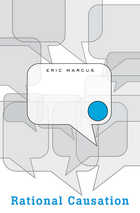
We explain what people think and do by citing their reasons, but how do such explanations work, and what do they tell us about the nature of reality? Contemporary efforts to address these questions are often motivated by the worry that our ordinary conception of rationality contains a kernel of supernaturalism—a ghostly presence that meditates on sensory messages and orchestrates behavior on the basis of its ethereal calculations. In shunning this otherworldly conception, contemporary philosophers have focused on the project of “naturalizing” the mind, viewing it as a kind of machine that converts sensory input and bodily impulse into thought and action. Eric Marcus rejects this choice between physicalism and supernaturalism as false and defends a third way.
He argues that philosophers have failed to take seriously the idea that rational explanations postulate a distinctive sort of causation—rational causation. Rational explanations do not reveal the same sorts of causal connections that explanations in the natural sciences do. Rather, rational causation draws on the theoretical and practical inferential abilities of human beings. Marcus defends this position against a wide array of physicalist arguments that have captivated philosophers of mind for decades. Along the way he provides novel views on, for example, the difference between rational and nonrational animals and the distinction between states and events.
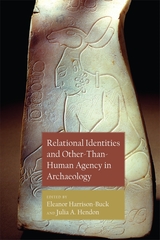
Relational Identities and Other-than-Human Agency in Archaeology explores the benefits and consequences of archaeological theorizing on and interpretation of the social agency of nonhumans as relational beings capable of producing change in the world. The volume cross-examines traditional understanding of agency and personhood, presenting a globally diverse set of case studies that cover a range of cultural, geographical, and historical contexts.
Agency (the ability to act) and personhood (the reciprocal qualities of relational beings) have traditionally been strictly assigned to humans. In case studies from Ghana to Australia to the British Isles and Mesoamerica, contributors to this volume demonstrate that objects, animals, locations, and other nonhuman actors also potentially share this ontological status and are capable of instigating events and enacting change. This kind of other-than-human agency is not a one-way transaction of cause to effect but requires an appropriate form of reciprocal engagement indicative of relational personhood, which in these cases, left material traces detectable in the archaeological record.
Modern dualist ontologies separating objects from subjects and the animate from the inanimate obscure our understanding of the roles that other-than-human agents played in past societies. Relational Identities and Other-than-Human Agency in Archaeology challenges this essentialist binary perspective. Contributors in this volume show that intersubjective (inherently social) ways of being are a fundamental and indispensable condition of all personhood and move the debate in posthumanist scholarship beyond the polarizing dichotomies of relational versus bounded types of persons. In this way, the book makes a significant contribution to theory and interpretation of personhood and other-than-human agency in archaeology.
Contributors:
Susan M. Alt, Joanna Brück, Kaitlyn Chandler, Erica Hill, Meghan C. L. Howey, Andrew Meirion Jones, Matthew Looper, Ian J. McNiven, Wendi Field Murray, Timothy R. Pauketat, Ann B. Stahl, Maria Nieves Zedeño

The topic of this book is self-consciousness, which is a kind of knowledge, namely knowledge of oneself as oneself, or self-knowledge. Sebastian Rödl's thesis is that self-knowledge is not empirical; it does not spring from sensory affection. Rather, self-knowledge is knowledge from spontaneity; its object and its source are the subject's own activity, in the primary instance its acts of thinking, both theoretical and practical thinking, belief and action.
The chapters of this book cover action and belief, freedom and reason, receptive knowledge and the second person. Each of these topics deserves its own book. And yet they would all be books on self-consciousness, for self-consciousness is the principle of their respective subject matters. Contemporary theories have been badly served by failing to acknowledge this. Taking the full measure of this insight requires a major conceptual reorientation in action theory, the philosophy of mind, and epistemology, which is begun in this book. As it can be said to be the principal thought animating Kant and his Idealist successors that self-consciousness occupies this central position, the book can be read as an attempt to recover and rejuvenate the achievement of the German Idealist tradition.
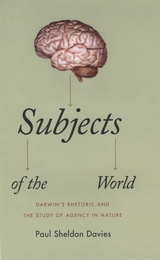
Being human while trying to scientifically study human nature confronts us with our most vexing problem. Efforts to explicate the human mind are thwarted by our cultural biases and entrenched infirmities; our first-person experiences as practical agents convince us that we have capacities beyond the reach of scientific explanation. What we need to move forward in our understanding of human agency, Paul Sheldon Davies argues, is a reform in the way we study ourselves and a long overdue break with traditional humanist thinking.
Davies locates a model for change in the rhetorical strategies employed by Charles Darwin in On the Origin of Species. Darwin worked hard to anticipate and diminish the anxieties and biases that his radically historical view of life was bound to provoke. Likewise, Davies draws from the history of science and contemporary psychology and neuroscience to build a framework for the study of human agency that identifies and diminishes outdated and limiting biases. The result is a heady, philosophically wide-ranging argument in favor of recognizing that humans are, like everything else, subjects of the natural world—an acknowledgement that may free us to see the world the way it actually is.
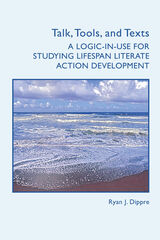
Talk, Tools, and Texts tackles a perplexing issue: how can we envision writing as developing throughout a lifetime, from the first purposeful marks made on paper to the last? How can we make accounts of writing development that keep the complexity of our lives in mind while also providing useful insight to researchers, teachers, and writers?
Drawing on eleven accounts of writers at different points in the lifespan (ages 12 to 80) and in different social circumstances (from a middle-school classroom to a bird-sanctuary newsletter), Talk, Tools, and Texts constructs a “logic-in-use” for following writers and their writing development at a variety of points in the lifespan. It also offers several strategies scholars can use in pursuit of their own research into lifespan writing.
READERS
Browse our collection.
PUBLISHERS
See BiblioVault's publisher services.
STUDENT SERVICES
Files for college accessibility offices.
UChicago Accessibility Resources
home | accessibility | search | about | contact us
BiblioVault ® 2001 - 2024
The University of Chicago Press









